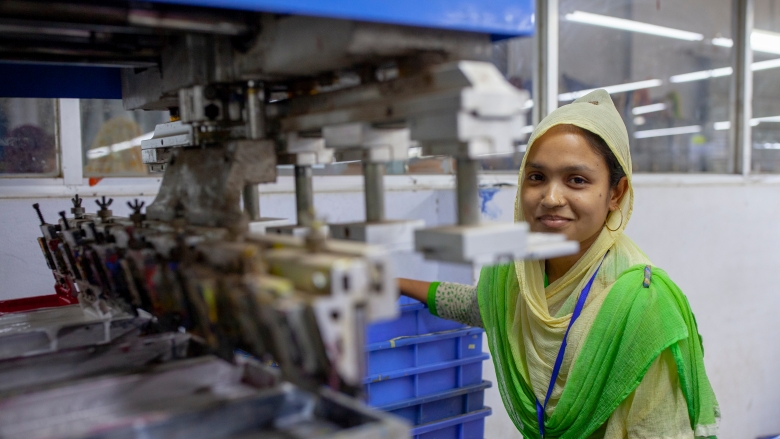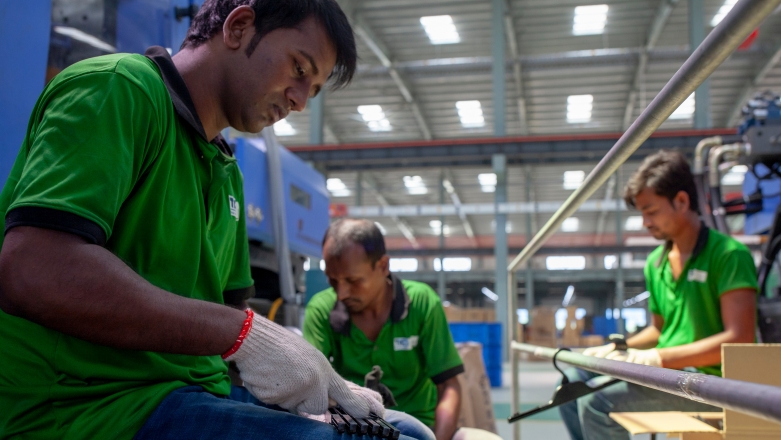Challenge
During the 1990s, increases in agricultural productivity prompted millions of agricultural workers to move into manufacturing and services in the cities, but a shortage of land for greenfield investments hindered this structural transformation. The government looked to special economic zones for its industrial growth and to create the desperately needed jobs. Safety had also become a high policy priority after a series of factory disasters, including large fire and building collapses in 2012 and 2013 that killed thousands of workers and injured and displaced many people. This generated an urgent need for stronger mechanisms to promote socially and environmentally responsible industrial growth in Bangladesh.
Approach
To address these challenges, the project combined institutional capacity building and infrastructure development together with firm and employee-level support. This approach facilitated the establishment of the Bangladesh Economic Zone Authority (BEZA) and the Bangladesh High-Tech Park Authority (BHTPA).
The technical assistance provided under the project developed institutional capacity to assess the feasibility of public land for the development of economic zones and high-tech parks, develop economic zones, and issue licenses. In so doing, the project supported the institutions to develop policies, rules, and regulations such as the Private Economic Zones Policy, Bangladesh Economic Zones Workers Welfare Policy, One Stop Services Act, and the Bangladesh economic Zones Fund Management Regulations. The project also helped Bangladesh to develop an investment pipeline through land development and investment promotion and facilitation. This included attracting Bangladesh’s first foreign tier-1 anchor investor in the economic zones’ developer-operator market space; developing the Bangabandhu Sheikh Mujib Shilpa Nagar 1 (BSMSN-1) and the Mongla Economic Zone; bringing those zones to market through a private lease agreement; and developing the land for BSMSN-2.
The project also supported employees of economic zones and software technology parks. The project helped raise compliance with building codes and supported a social and environmental counsellor program in Export Processing Zones, which has served around 500,000 workers. The project has also trained thousands of IT workers and executives and helped firms enhance internal processes and quality of output after obtaining international quality certifications.

